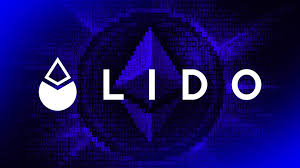Decentralized Autonomous Organization (DAO) Treated as General Partnership for Liability Purposes–Samuels v. Lido DAO

The DAO raised initial capital by selling LDO token principally to three major investors, Paradigm Operations, Andreessen Horowitz, and Dragonfly Digital Management. The plaintiff Samuels purchased his LDO tokens later on an after-market exchange, Gemini, but sold them at a loss.
Samuels sued the Lido DAO, but a shadowy entity (Dolphin CL, LLC) defended the Lido DAO on the grounds that the DAO wasn’t an entity at all; it is just software code. The court is not persuaded: “Lido’s alleged actions are not those of an autonomous software program—they are the actions of an entity run by people.” (70 employees, in fact). The court also asks how Dolphin CL has standing to appear on behalf of software code.
The investors argued that they can’t be liable because the Lido DAO isn’t a general partnership. The court says Samuels adequately pleaded it was:
The complaint alleges that Lido DAO’s founders formed it to run an Ethereum staking service that keeps a percentage of the staking rewards and that they plan to ultimately distribute this revenue to themselves and other tokenholders—in other words, to carry on, as coowners, a business for profit.
This legal theory exposes a thorny dilemma, however. Apparently the plaintiff isn’t claiming that every Lido DAO tokenholder is a general partner, but it’s not clear how to decide who is a partner and who isn’t. For example, one of Lido DAO’s selling points appears to be that every token gets a vote on governance matters–couldn’t that governance authority make every tokenholder a general partner? The plaintiff adequately alleged that the big three early investors were general partners because they played important roles in DAO governance, but I’m not sure how to distinguish among the various tokenholders with a voice on governance matters.
Of course, if an after-market token purchaser becomes a general partner of an organization with legacy liabilities, the buyer would be stepping into potentially limitless exposure. That potential exposure would chill token purchases quite a bit. The solution would be to properly form the DAO as a legal entity that protects investors interests (a corporation, or even an LLP), but that’s not what happened here.
This ruling is on a motion to dismiss, and the plaintiff’s case may still fall apart. So perhaps the investors will find a way to turn this ruling around, but otherwise, it poses significant risk to them and possibly will impact many key aspects of the crypto industry.
Case Citation: Samuels v. Lido DAO, 2024 U.S. Dist. LEXIS 209474 (N.D. Cal. Nov. 18, 2024)